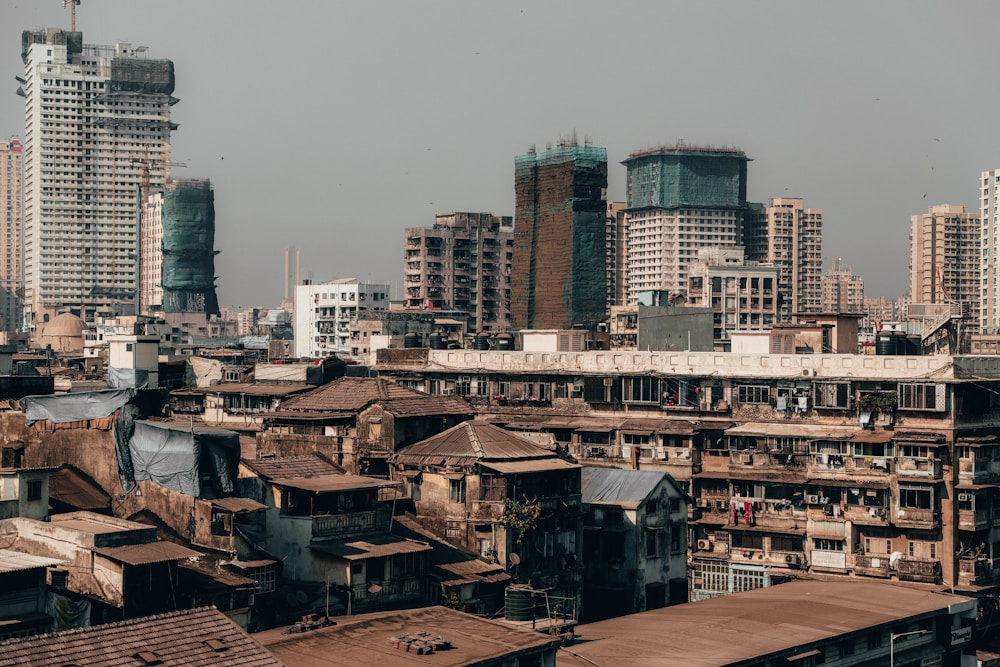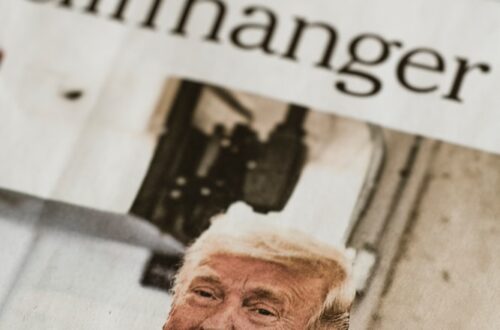The bold statement
Over the weekend, Donald Trump asserted that U.S. military intervention in Nigeria “could be” imminent if the Nigerian government fails to act on what he described as large-scale killings of Christians in that country. Aboard Air Force One, he responded “Could be” when asked if boots on the ground or air-strikes were on the table.
He also warned that the U.S. would “immediately stop all aid and assistance to Nigeria, and may very well go into that now disgraced country, ‘guns-a-blazing,’ to completely wipe out the Islamic Terrorists who are committing these horrible atrocities.”
He justified the thrust of his remarks by saying: “They’re killing the Christians and killing them in very large numbers… We’re not going to allow that to happen.”
The immediate ripple effect
Nigeria has rejected the characterisation. The government under Bola Tinubu described the claim of religious-persecution targeting Christians as misleading and the threats as an overreach into Nigeria’s sovereignty.
Meanwhile, U.S. policy has been updated: Nigeria was put back on the U.S. list of “Countries of Particular Concern” for religious freedom violations.
Why the timing and context matter
Nigeria is Africa’s most populous country (around 220 million people). Its religious make-up is roughly half Christian, half Muslim, although regional variation is significant. The country is embroiled in multiple security crises: jihadist insurgency from groups like Boko Haram and the Islamic State’s West Africa Province, communal clashes, farmer-herder violence, and widespread banditry.
So when a U.S. leader raises the possibility of military action, it signals a sharp escalation of diplomatic and possibly strategic posture.
Breaking down the key components
1. The claim of Christian persecution
Trump’s central claim is that Christians in Nigeria are being killed in “very large numbers” and that Nigeria’s government is allowing or failing to stop the murders.
However, analysts and Nigerian spokespeople say the situation is far more complex:
- Violence in Nigeria often cuts across religious lines; both Christians and Muslims fall victim.
- Many attacks are tied to geography (northern/central Nigeria), communal identity, ethnicity, resources (farmer/herder conflicts) rather than strictly religious targeting.
- Some of the data cited by activists goes back years; the question of current trendlines is contested.
In other words, the allegation of systematic religious persecution of Christians runs into interpretive and evidentiary challenges.
2. The U.S. threat: aid cut + military action
By combining a threat to cut all U.S. assistance and the possibility of direct military intervention, the U.S. message changes from diplomatic pressure to a quasi-coercive posture.
- Designating Nigeria as a “Country of Particular Concern” gives legal/administrative tools (sanctions, aid restrictions) for the U.S. government.
- The mention of “boots on the ground” or air strikes and ordering the Pentagon to prepare for “possible action” raises the spectre of military force — which is unusual in U.S.–Africa relations.
3. Nigeria’s reaction and questions of sovereignty
Nigeria firmly holds that it is committed to religious freedom, and asserts that the characterisation is inaccurate. The government emphasises its own efforts and rejects external pressure as simplistic or ill-informed.
From a sovereignty perspective: any U.S. military action in Nigeria would raise major legal, diplomatic and logistical questions — for example:
- Would Nigeria invite the U.S. or would it be unilateral?
- Under what legal authority? (U.S. domestic law, UN mandate, bilateral treaty?)
- What would be the objective and how would success be measured?
4. Regional implications
If the U.S. signals it might militarily intervene in Nigeria, several broader dynamics come into view:
- Western Africa and the Sahel are already regions of heavy security concern. U.S. military footprint in Africa has been reduced in recent years but still active in training, aerial surveillance and special operations support.
- Nigeria is an oil-producer, a regional power, a major U.S. partner for many reasons (economically, geopolitically). A shift to threats of force radically alters that relationship.
- It raises questions of precedent: if the U.S. intervenes (or threatens), will other states see this as license to intervene elsewhere? Will regional neighbours respond?
What to watch next
Here are several indicators to keep an eye on:
- U.S. policy signals: Has the U.S. Department of Defense or State Department issued concrete plans or timelines for military action? Are there Congressional moves (hearings, budget allocations) tied to Nigeria?
- Nigeria’s response: Will Nigeria engage in negotiations, ask for international mediation, or take visible steps to address the claims? Will it request assistance rather than resist?
- Aid flows: Will the U.S. actually cut aid? What will be the ripple effects for Nigeria’s security and economy?
- Ground realities in Nigeria: How will the security landscape evolve — will attacks continue or increase in regions like the Middle Belt, Northwest, Northeast? Will we see hardness of numbers regarding religious vs non-religious targeting?
- Regional and international reaction: What will neighbouring African states say? How will the U.S.’s allies and partners react (e.g., Europe, UN, African Union)?
Why this matters — beyond the headlines
This moment is significant for several reasons:
- Humanitarian/co-religious freedom dimension: If credible evidence exists that large numbers of people are being targeted based solely on religion, that raises moral and legal imperatives. The U.S. has positioned itself as a global advocate for religious freedom.
- Shift in U.S. approach to Africa: Historically, U.S. engagements in Africa have leaned heavily toward training, counter-terrorism support, diplomacy and aid — not large-scale boots on the ground interventions. A departure from that would mark a strategic shift.
- Sovereignty and precedent: If the U.S. were to intervene unilaterally in Nigeria, this could raise new questions about how much external powers can impose military solutions in sovereign states without invitation or UN backing.
- Domestic political implications: For U.S. audiences, religious freedom and protecting co-religionists overseas can be politically potent. For Nigeria, being publicly threatened by a major power could have political cost and may affect national identity and internal governance.
- Regional stability: Nigeria’s stability matters for West Africa. If Nigeria’s government sees external pressure or potential intervention, that may catalyse internal unrest, backlash, or even attract extremist recruitment.
Three possible scenarios ahead
Here’s how things might unfold:
- Diplomatic escalation only
The U.S. heightens pressure: aid cut, public naming of officials, condemnation. Nigeria responds with some reforms or statements. But no military intervention. Tensions simmer but no boots on the ground.- Pros: Less risk of full-blown conflict.
- Cons: Underlying violence in Nigeria likely continues, and the humanitarian/religious-freedom concerns remain unresolved.
- Limited military support/aid response
Instead of full intervention, the U.S. ramps up indirect military support: intelligence, surveillance, training missions; pressure via sanctions on individuals. Nigeria may accept assistance. The military threat remains rhetorical.- Pros: Maintains leverage, avoids full scale intervention.
- Cons: Risk of blowback if seen as external meddling; may not change violence patterns fast enough.
- Direct intervention
True boots on the ground, air strikes or special operations inside Nigeria without Nigeria’s full cooperation or at least without broad consensus.- Pros: Could shift dynamics if decisive.
- Cons: Huge risks: sovereignty violation, civilian casualties, regional backlash, long-term commitment, mission creep.
What we don’t yet know
- The specific evidence base: What are the verified figures for “large numbers of Christians killed” in Nigeria in the last year? How many attacks were religiously motivated? Distinguishing religious motivation from ethnic, communal or resource-based violence is tricky.
- What internal Nigerian strategy changes, if any, will the government enact in response? Will there be reform, investigations, or new security operations?
- What the U.S. government’s legal framework will be if it decides to act militarily. Will Congress be involved? What about international law?
- How regional actors (like the African Union, ECOWAS) will respond if the U.S. moves toward intervention in Nigeria.
Bringing it home: what you and I should take away
We live in an interconnected world. What happens in one nation can ripple widely—through humanitarian concerns, geopolitics, economics and global norms.
When a superpower like the U.S. signals possible military action in a large, sovereign country like Nigeria, it deserves our attention. Not because we presume war is inevitable—but because the threshold is shifting.
For people who follow global affairs, policy, faith-related issues or international security, this moment is a pivot point: it raises serious questions about how religious freedom is defended, how external pressure is applied, and what the limits of intervention might be.
We should watch closely, ask critical questions, and look for thoughtful analysis—not just headlines. Because when the rhetoric escalates this far, the stakes may be higher than they appear.
Next-level thought for us
Let’s stay curious, stay informed, and resist the urge to accept simple narratives. The world rarely lines up in black-and-white. When we hear claims of “mass slaughter” or “boots on the ground,” let’s ask: What’s verified? What’s strategic? What’s overlooked?
Because in matters this heavy, nuance matters. In other words: let’s be alert, thoughtful and clear-headed.





